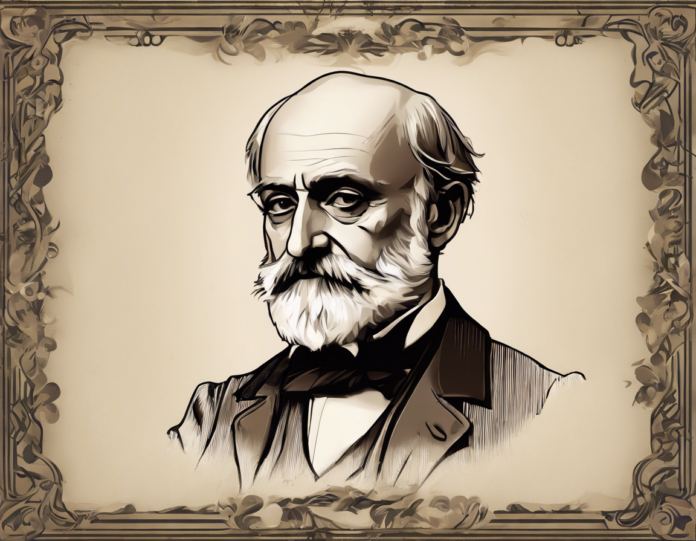Giuseppe Mazzini, born in Genoa in 1805, is often referred to as the “soul” of the Italian unification movement. He was a revolutionary thinker, politician, and activist who played a pivotal role in the drive for Italian independence and unification in the 19th century. Mazzini’s ideological contributions and tireless efforts significantly influenced the course of Italian history and politics.
Early Life and Education:
Giuseppe Mazzini was born into a middle-class family in the port city of Genoa. His early education exposed him to the ideas of the Enlightenment and the political turmoil of his time, shaping his deep-rooted belief in the principles of nationalism, democracy, and republicanism. Mazzini studied law at the University of Genoa, where he became involved in revolutionary activities.
The Founding of Young Italy:
In 1831, Mazzini founded “Young Italy,” a secret society dedicated to promoting Italian unification through revolutionary means. The organization aimed to mobilize young people across the Italian peninsula to fight against foreign domination and establish an independent, unified Italian republic. Mazzini’s vision for Italy as a unified nation-state struck a chord with many disillusioned Italians and galvanized a new generation of nationalists.
Advocacy for Republicanism and Democracy:
Mazzini was a staunch advocate of republican government and popular sovereignty. He believed in the power of the people to shape their own destiny and govern themselves through democratic institutions. Mazzini’s writings and speeches emphasized the importance of political activism, civic virtue, and national unity in the pursuit of freedom and self-determination.
Exile and International Activism:
Due to his revolutionary activities and political beliefs, Mazzini faced repeated persecution by autocratic regimes across Europe. He was forced into exile multiple times and lived in France, Switzerland, and England, where he continued to organize and agitate for Italian unification. Mazzini’s tireless efforts to garner international support for the Italian cause helped raise awareness of the struggle for independence and inspired solidarity among liberal and nationalist movements.
Legacy and Impact:
Giuseppe Mazzini’s contributions to the Italian Risorgimento, or resurgence, were profound and enduring. His unwavering commitment to national liberation, social justice, and human rights left an indelible mark on the trajectory of Italian history. Mazzini’s influence extended beyond Italy and inspired generations of revolutionaries and democrats around the world.
Frequently Asked Questions (FAQs):
1. What were Giuseppe Mazzini’s main ideological beliefs?
– Answer: Mazzini believed in the principles of nationalism, democracy, republicanism, and popular sovereignty as essential for the progress and freedom of nations.
2. How did Mazzini’s organization, Young Italy, contribute to the Italian unification movement?
– Answer: Young Italy mobilized young people for the cause of Italian independence, spreading nationalist ideas and promoting revolutionary action.
3. Why was Mazzini exiled multiple times during his lifetime?
– Answer: Mazzini’s revolutionary activities and advocacy for republican government made him a target for authoritarian regimes, leading to his frequent exiles.
4. How did Mazzini’s international activism impact the Italian unification movement?
– Answer: Mazzini’s efforts to garner international support for Italy’s independence raised awareness and fostered solidarity among liberal movements in Europe.
5. What is Giuseppe Mazzini’s legacy in Italian history?
– Answer: Mazzini is revered as a key figure in the Italian Risorgimento, whose ideas and actions laid the groundwork for the eventual unification of Italy as a nation-state.
In conclusion, Giuseppe Mazzini’s leadership and vision played a pivotal role in shaping the course of Italian nationalism and the quest for independence. His enduring legacy as a champion of liberty, democracy, and national unity continues to inspire movements for freedom and self-determination worldwide.

